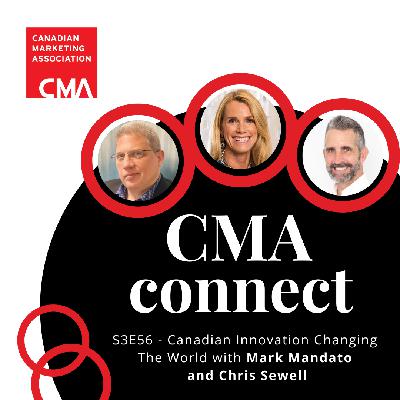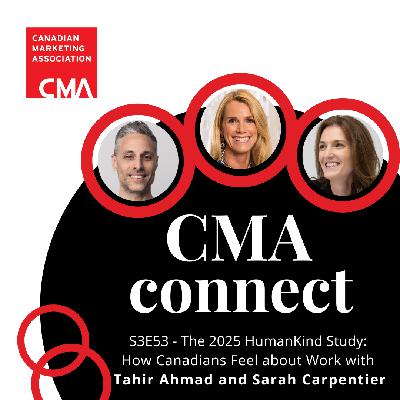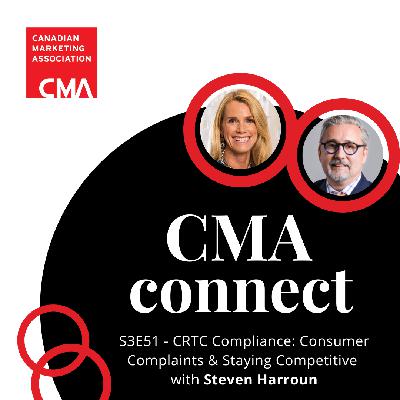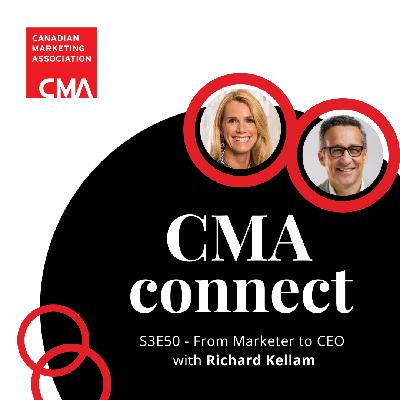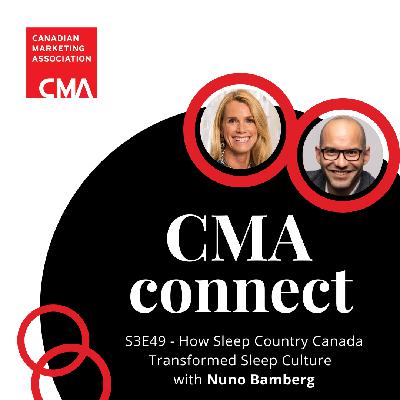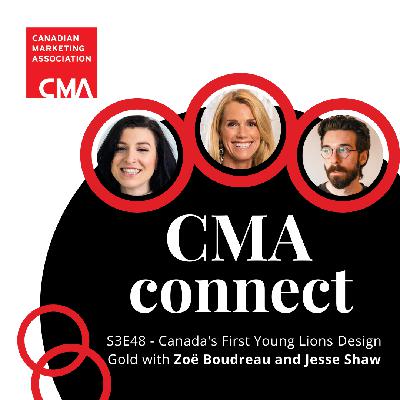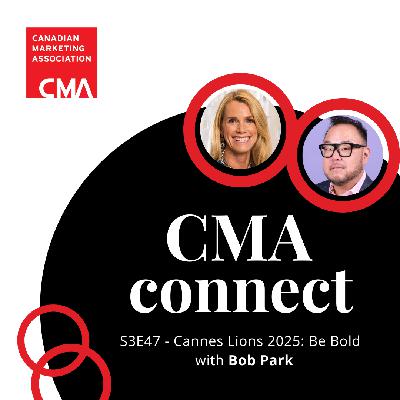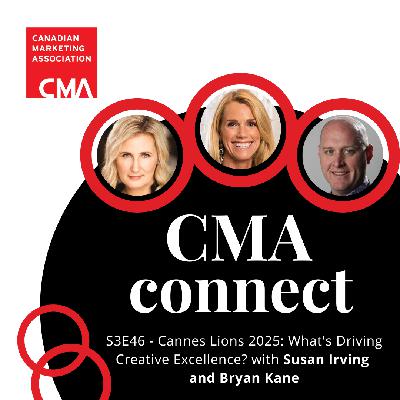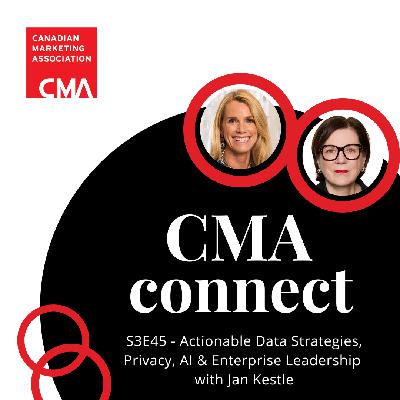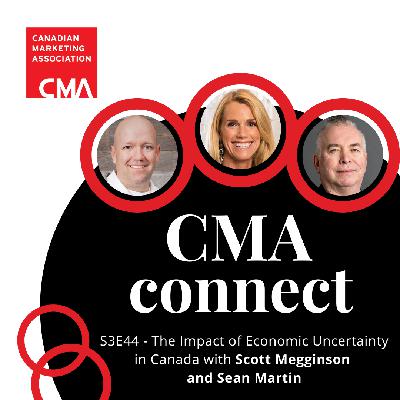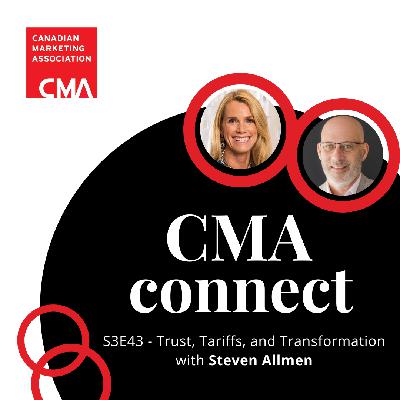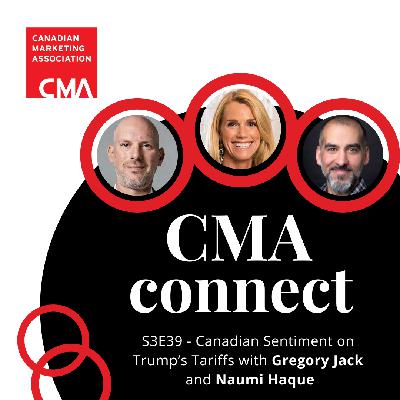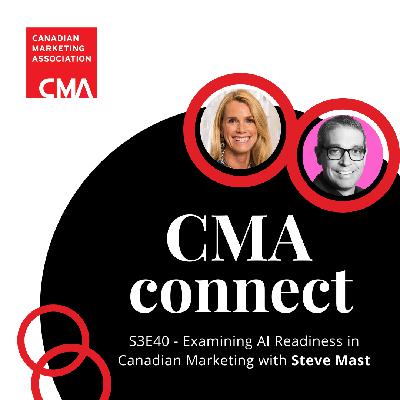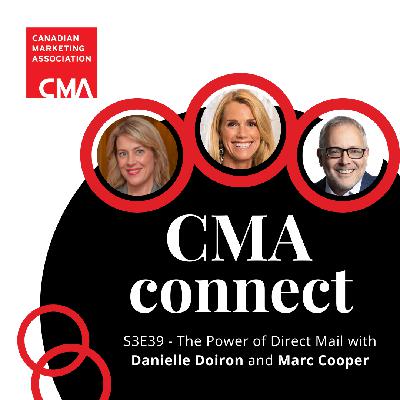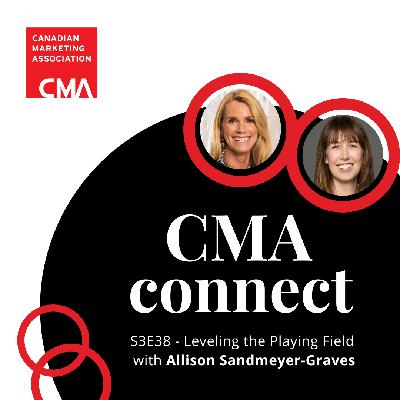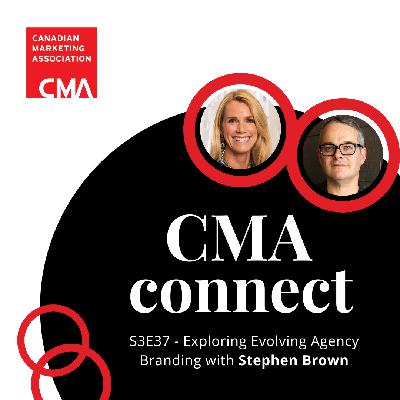EP42 - Beyond Brand Control with Neil Patel
Description
In this live episode of CMA Connect for CMA Marketing Week 2025, Alison Simpson the CEO of the CMA welcomes Neil Patel, New York Times bestselling author, and the Founder of NP Digital. Their conversation covers various topics from the impact of AI on marketing, and the importance of continuous learning and adaptation, to the changing nature of brand control and exposing the myth of controlling narratives. Listen in as Alison and Neil discuss the evolving landscape of the marketing profession in Canada and decide for yourself if brands still matter.
00:00:01 :18 - 00:00:22 :05
Presenter
Welcome to CMA Connect, Canada's marketing podcast, where industry experts discuss how marketers must manage the tectonic shift that will change how brands and businesses are built for tomorrow, while also delivering on today's business needs. With your host CMA CEO Alison Simpson.
00:00:22 :07 - 00:00:45 :09
Alison
So it's an absolute pleasure to welcome everyone in the room today, as well as the hundreds of Canadians that are joining us from across the country to this live version of CMA connect. As we've heard throughout the morning, marketing isn't just changing. It is absolutely being redefined in real time. And it's so important to take time to reflect and digest and make sure that our pivoting makes sense.
00:00:45 :11 - 00:01:07 :03
Alison
It's absolutely, very much a period of test and learn as well. And the most recent panel did a phenomenal job of sharing how that's working for them as well. And they both panels today have really given us a lot to reflect on. So building on that theme, I'm thrilled to be joined by Neil Patel and Years time bestselling author and also the founder of NP digital.
00:01:07 :05 - 00:01:32 :16
Alison
He's going to be joining me on stage momentarily, but while he's coming up, I will share a little bit about Neil. Neil's full service digital marketing agency has helped industry giants like Microsoft and Google, just to name a couple, grow through revolutionary marketing strategies. He also has a marketing school podcast that attracts over 1 million listeners monthly. The United Nations recognized Neil as one of the top 100 entrepreneurs under the age of 35.
00:01:32 :18 - 00:01:49 :15
Alison
Oh, and The Wall Street Journal cited him as a top influencer on the web, just around things out. He made Forbes list of the top ten marketers. You know what? I thought my career was going pretty well until I started to learn a little bit more about Neil. So, you know, I've had the pleasure of meeting and doing a CME session with him last year.
00:01:49 :15 - 00:01:52 :18
Alison
So it's great to welcome you back to Canada.
00:01:52 :20 - 00:01:56 :02
Neil
Thank you. Thank you.
00:01:56 :04 - 00:02:03 :23
Alison
So we're going to jump right in. What are the biggest rules you've seen rewritten. And then how are you going to rate us on our ability to adapt to those rules.
00:02:04 :01 - 00:02:25 :02
Neil
Yeah. So when you're thinking about the rules of marketing, people just used to assume marketing wasn't very black and white. I'm not talking about from the creative aspect, but in marketing, in general, people are like, okay, you spend money on clicks and you get traffic to your website, you generate sales, you rank on Google, you get clicks, you generate sales.
00:02:25 :02 - 00:02:48 :06
Neil
And one of the biggest rules has been changed in marketing is platforms now are trying to optimize keeping people on their own platform, their own site, instead of sending people off to your website. Marcus believe that you would have to have people coming to your website to drive revenue and sales. You can now purchase on Instagram or TikTok without ever leaving that platform.
00:02:48 :09 - 00:03:13 :04
Neil
The business generates revenue and Instagram and TikTok, so have the user. They sell them more products, more services. So I would say the biggest rule that I'm seeing being rewritten right now is traditional form of marketing. Of sending them to a business to generate revenue is no longer the case. A business can make money on multiple platforms, and it's no longer about getting people over to your brand, your website.
00:03:13 :10 - 00:03:22 :14
Neil
It's more so capturing their attention on whatever platform they are on and then selling them right then and there on that platform natively.
00:03:22 :16 - 00:03:26 :17
Alison
And how are you writing marketers overall in our ability to adapt to that?
00:03:26 :19 - 00:03:53 :09
Neil
Marketers have been adapting really well. What we typically see is the marketers who work for SMEs tend to adapt first, and then the marketers who work at large corporations typically adapt second, because it just takes time and energy. And when you're a big corporation, you know, that's publicly traded, that it has $100 billion market cap. It takes time to make adjustments versus when you're a five person start.
00:03:53 :11 - 00:04:00 :23
Alison
Now you also work with a lot of big tech organizations. So are they a bit more agile or they're still suffering from the same?
00:04:01 :01 - 00:04:04 :23
Neil
They're still suffering from the same thing that all the other corporations are.
00:04:05 :01 - 00:04:16 :14
Alison
So, Neil, as we look to the future, there are some experts out there that are starting to question will brands continue to be relevant? So in your opinion, will Rand still matter in an age of algorithms and hyper personalization?
00:04:16 :16 - 00:04:39 :00
Neil
AI brands, I think, matter more than ever before. Think of AI overviews. You do a search you may get mentioned in a overviews you don't necessarily always get a click back to your website. You do a search on ChatGPT. You may see a brand or a product or service recommended. You may end up purchasing later on. You may not purchase at all, but it's very rare that you're actually clicking over to the website.
00:04:39 :06 - 00:04:57 :07
Neil
You see a real on Instagram or video. Whatever you want and calling it short form. See a product or service mention you don't go and buy right away. In most cases. That brand recognition, though, is what eventually leads to a sale. In marketing, they call something the rule of seven. Or there's this thing called the Rule of seven.
00:04:57 :07 - 00:05:24 :03
Neil
When someone sees or interacts with your brand seven times, they're much more likely to engage, become a customer, evangelize. And we started looking at price points in both B2C and B2B. Of course, the cheaper the price point, the less interaction someone needed with the brand before they purchase. But when we looked at price points across the whole board for both B2B and B2C, the average number of interactions someone has with the brand when we did a study was around 11.
00:05:24 :08 - 00:05:34 :22
Neil
So branding is more important than ever, because if you're not touching people multiple times and you're not saying top of mind, you're less likely to drive that sale when they're ready to make that decision.
00:05:35 :00 - 00:05:56 :14
Alison
Now, awareness and trust in a brand is obviously yes. We heard the panel talk about the emotional part of a brand. It's there's always going to be product features and benefits. But as humans we react emotionally. And we also heard a lot about authenticity. What else would you add to what makes a brand as important or even more important today?
00:05:56 :16 - 00:06:12 :05
Neil
So if you want your brand to be super important, I would say you got to figure out an angle. You know, trust, authenticity. These are all a lot of things that markers talk about. And it's been there for a very long time. But what are you doing that's different? So I'll give you a great example of this right.
00:06:12 :07 - 00:06:37 :01
Neil
I'm listening in. I'm from the States. I'm not familiar with as many Canadian brands as you guys may be. So one of the panelists before me was from Farm Girl. Never heard of it. I have kids, don't give them cereal in the morning. Why? It's terrible for you in most cases, right? The advantage you guys have here in Canada is you guys typically have cleaner ingredients.
00:06:37 :03 - 00:07:01 :00
Neil
Our box of FrootLoops is much worse, at least from what we see on Instagram Reels when they compare versus what the Canadian version of FrootLoops is. All right, so when I saw Farm Girl, the first thing I did, even if there's a tariff for me, I tried to purchase it on Amazon, I think was like 20 something dollars, USD per package.
00:07:01 :00 - 00:07:17 :01
Neil
I added three to a cart, and then I was like, I'm like, wait, I'm here for extra like few hours. Can I just go to the grocery store and pick some up? Because my suitcase is half empty? I'm literally here for a day, right? Like I should just go to the grocery store and just see if I can shove a ton in.
00:07:17 :03 - 00:07:54 :05
Neil
I don't know what's going to happen at the customs or I'm Global Entry, so hopefully I don't get any beef, but that was a unique angle, solving a problem that people have. When I grew up, I eat cereal and my parents didn't know any better. Immigrants from India, you know, they look at it as like, anything's great. We're not living on the street, you know, give your kid whatever is on sale, affordable cut coupons, etc. at this point in time, we're much more educated as parents then I would say that t


